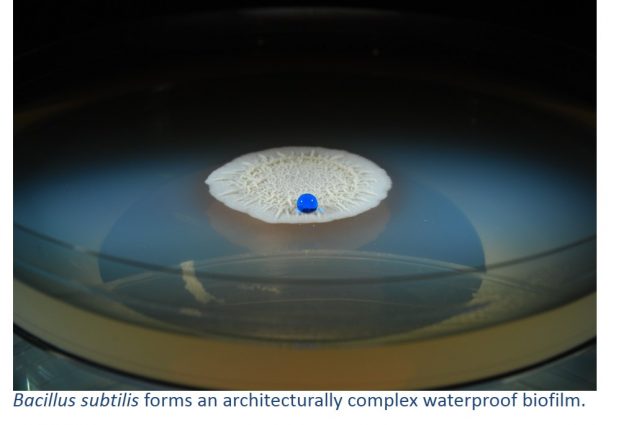The 2016 Wain Medal Lecture will be given by Professor Nicola Stanley-Wall, School of Life Sciences, University of Dundee on Wednesday 28 September at 17.00 in Woolf Lecture Theatre, University of Kent. Free and open to all.
Bacteria are microscopic organisms that inhabit and thrive in a vast array of environments including the icy Antarctic and on your teeth! Despite their size, the impact they have on our bodies, and our surrounding environment, is extraordinary. Bacteria use many mechanisms to shape and control their habitat. One of which has been the focus of my research group and is the formation of stable, sessile communities called biofilms. In these microbial cities, bacteria envelop themselves in a sticky glue called the biofilm matrix. The biofilm matrix includes extracellular DNA and both large sugar and protein molecules which, in combination, help to protect the cells resident in the community. The protection exerted by the biofilm matrix can include resistance towards many commonly used antimicrobial agents, including bleach and antibiotics, or may come in the form of shielding the community from detection by our immune system. It is these features of biofilms that allow them to be so successful, and from the point of view of humans the success is accompanied by either problems or benefits. For example they are the cause of the majority of chronic infections but are also responsible for sewage processing.
This lecture will introduce you to the hidden and visible world of microbial biofilms; it will cover where biofilms are put to work and where they cause problems. It will discuss our multidisciplinary work directed at understanding how the biofilm matrix is assembled and will highlight why we are interested in this area of research.
Sent in by: Professor Martin Warren
